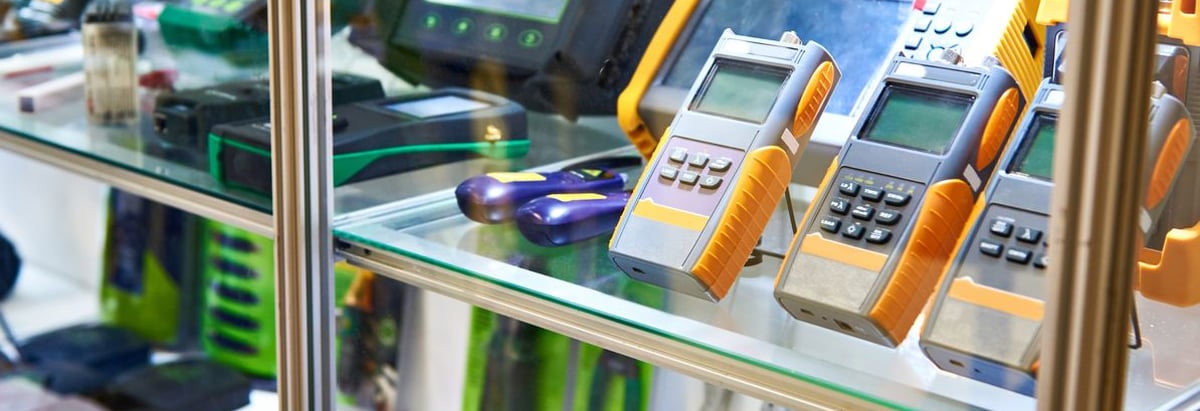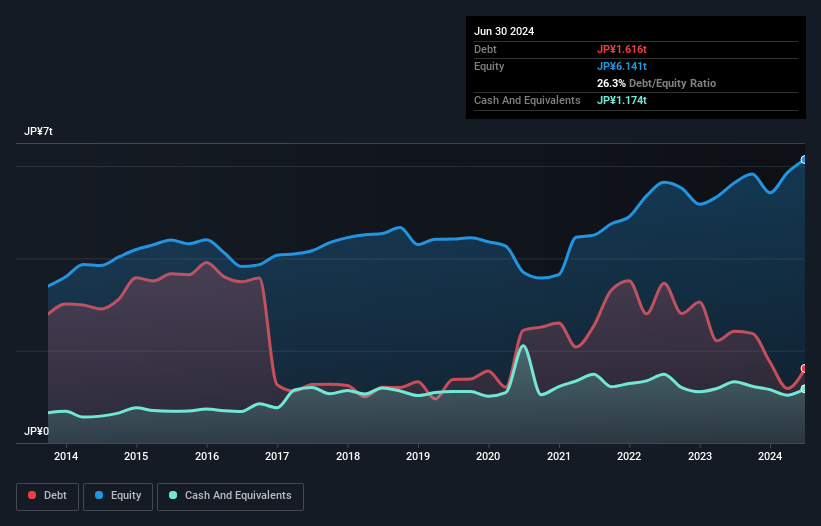
David Iben put it well when he said, 'Volatility is not a risk we care about. What we care about is avoiding the permanent loss of capital.' So it seems the smart money knows that debt - which is usually involved in bankruptcies - is a very important factor, when you assess how risky a company is. As with many other companies Hitachi, Ltd. (TSE:6501) makes use of debt. But the more important question is: how much risk is that debt creating?
When Is Debt Dangerous?
Debt assists a business until the business has trouble paying it off, either with new capital or with free cash flow. If things get really bad, the lenders can take control of the business. However, a more usual (but still expensive) situation is where a company must dilute shareholders at a cheap share price simply to get debt under control. Of course, the upside of debt is that it often represents cheap capital, especially when it replaces dilution in a company with the ability to reinvest at high rates of return. When we think about a company's use of debt, we first look at cash and debt together.
Check out our latest analysis for Hitachi
What Is Hitachi's Net Debt?
You can click the graphic below for the historical numbers, but it shows that Hitachi had JP¥1.62t of debt in June 2024, down from JP¥2.42t, one year before. However, it also had JP¥1.17t in cash, and so its net debt is JP¥442.0b.

How Strong Is Hitachi's Balance Sheet?
Zooming in on the latest balance sheet data, we can see that Hitachi had liabilities of JP¥5.63t due within 12 months and liabilities of JP¥1.63t due beyond that. On the other hand, it had cash of JP¥1.17t and JP¥3.16t worth of receivables due within a year. So its liabilities outweigh the sum of its cash and (near-term) receivables by JP¥2.93t.
Of course, Hitachi has a titanic market capitalization of JP¥15t, so these liabilities are probably manageable. However, we do think it is worth keeping an eye on its balance sheet strength, as it may change over time.
We measure a company's debt load relative to its earnings power by looking at its net debt divided by its earnings before interest, tax, depreciation, and amortization (EBITDA) and by calculating how easily its earnings before interest and tax (EBIT) cover its interest expense (interest cover). Thus we consider debt relative to earnings both with and without depreciation and amortization expenses.
Hitachi has a low net debt to EBITDA ratio of only 0.34. And its EBIT covers its interest expense a whopping 40.3 times over. So we're pretty relaxed about its super-conservative use of debt. On the other hand, Hitachi's EBIT dived 12%, over the last year. If that rate of decline in earnings continues, the company could find itself in a tight spot. The balance sheet is clearly the area to focus on when you are analysing debt. But ultimately the future profitability of the business will decide if Hitachi can strengthen its balance sheet over time. So if you want to see what the professionals think, you might find this free report on analyst profit forecasts to be interesting.
Finally, while the tax-man may adore accounting profits, lenders only accept cold hard cash. So it's worth checking how much of that EBIT is backed by free cash flow. Over the most recent three years, Hitachi recorded free cash flow worth 52% of its EBIT, which is around normal, given free cash flow excludes interest and tax. This free cash flow puts the company in a good position to pay down debt, when appropriate.
Our View
Hitachi's interest cover was a real positive on this analysis, as was its net debt to EBITDA. But truth be told its EBIT growth rate had us nibbling our nails. Considering this range of data points, we think Hitachi is in a good position to manage its debt levels. But a word of caution: we think debt levels are high enough to justify ongoing monitoring. The balance sheet is clearly the area to focus on when you are analysing debt. However, not all investment risk resides within the balance sheet - far from it. Be aware that Hitachi is showing 1 warning sign in our investment analysis , you should know about...
Of course, if you're the type of investor who prefers buying stocks without the burden of debt, then don't hesitate to discover our exclusive list of net cash growth stocks, today.
Valuation is complex, but we're here to simplify it.
Discover if Hitachi might be undervalued or overvalued with our detailed analysis, featuring fair value estimates, potential risks, dividends, insider trades, and its financial condition.
Access Free AnalysisHave feedback on this article? Concerned about the content? Get in touch with us directly. Alternatively, email editorial-team (at) simplywallst.com.
This article by Simply Wall St is general in nature. We provide commentary based on historical data and analyst forecasts only using an unbiased methodology and our articles are not intended to be financial advice. It does not constitute a recommendation to buy or sell any stock, and does not take account of your objectives, or your financial situation. We aim to bring you long-term focused analysis driven by fundamental data. Note that our analysis may not factor in the latest price-sensitive company announcements or qualitative material. Simply Wall St has no position in any stocks mentioned.
About TSE:6501
Hitachi
Provides digital system and services, green energy and mobility, and connective industry solutions in Japan and internationally.
Flawless balance sheet, good value and pays a dividend.
Similar Companies
Market Insights
Community Narratives



